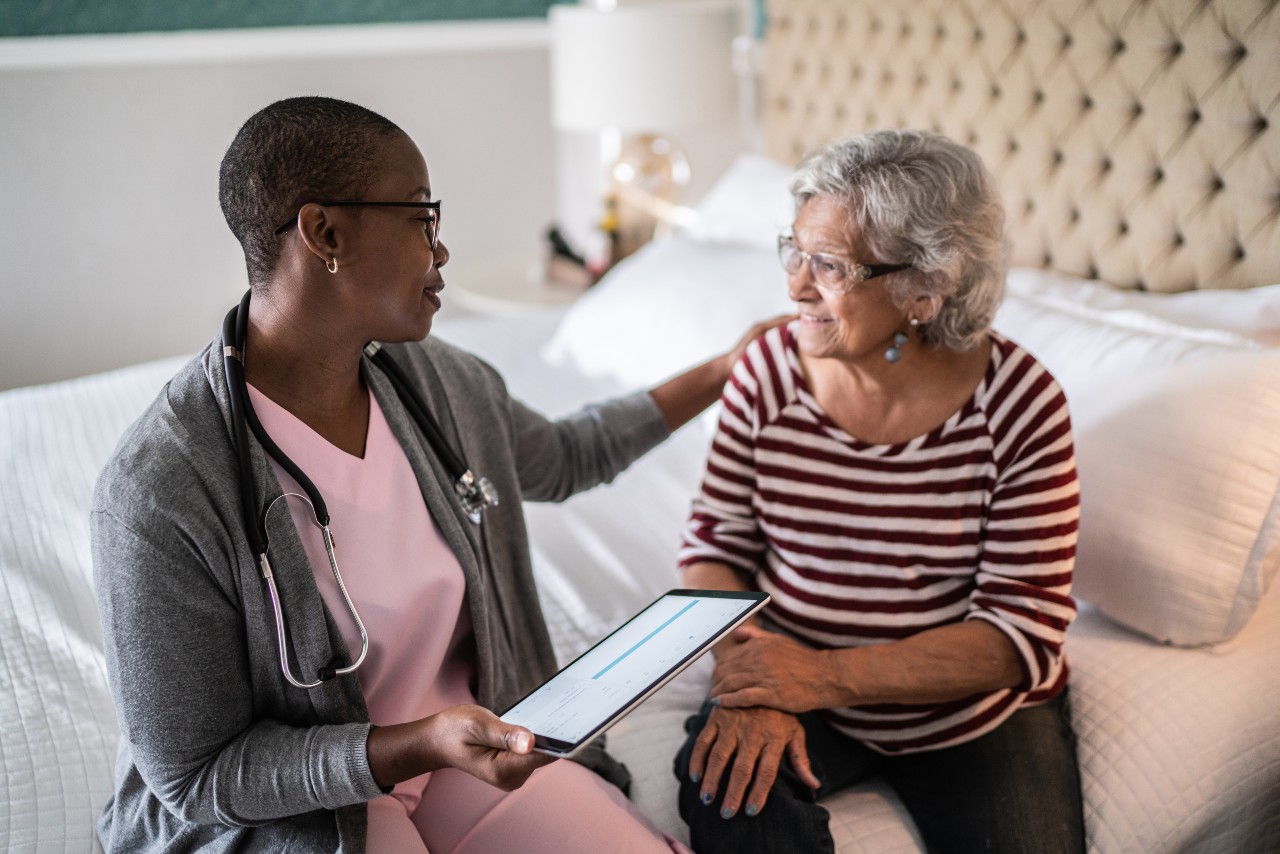When Should Primary Caregivers Use Respite Care?

Caregivers are impressive. They’re strong, generous and nurturing, but they’re still human. Though caregiving can be deeply rewarding, it is also undeniably taxing. Even the most dedicated loved ones can benefit from carving out time for their own self-care to avoid caregiver burnout. Caregivers need and deserve breaks from their duties so they can focus on aspects of their lives beyond caring for their loved one. That’s where respite care comes in.
What Is Respite Care?
Respite care provides short-term relief services for primary caregivers. A team of experienced specialists will care for your loved one for hours, days, weeks — whatever you need. You can hire respite services to come to your home, but many caregivers prefer the reliability, warmth and professionalism of a senior living community.
Why is it so Important?
According to a study by AARP and the National Alliance for Caregiving, caregivers dedicate an average of 24.4 hours per week to providing care. And 23% of caregivers spend 41 hours or more per week. The larger the demand on one’s time, the more likely caregivers are to experience negative impacts on their emotional, physical and financial well-being. Many caregivers, in their selflessness, end up neglecting their own needs. Nearly 25% reported that their health has worsened as a result of their duties. And that number rises significantly as the time demands increase. This decline in caregivers’ health is a result of both the physical strain they experience as well as the emotional stress. Caregiver burnout is common, and one of the best ways to avoid it is to utilize support services early and often. According to the AARP/NAC study, despite the well-documented stress of caregiving, just 12% of family caregivers took advantage of respite care services.
When to Use Respite Care
1. After a hospital stay
If your loved one is recovering from surgery or an acute illness, respite care can create an easier transition from hospital to house. With experts there to monitor your loved one, you can be sure any obstacles or challenges will be handled quickly and efficiently.
2. When you need a break
Self-care should be an important priority in your caregiving strategy. As the saying goes, “You can’t pour from an empty cup.” You may need a break for a few hours to run errands, see friends, go to doctors’ appointments, or attend your child’s soccer game. You may need a week or two to restore your own emotional and physical resources. If you can, try to schedule reprieves before you reach a breaking point. Early action can better preserve your mental well-being.
3. During Travel
Whether you’re taking a vacation, attending a work conference, or going to a family wedding, a trip is a great time to take advantage of respite care. Ease the anxiety of traveling with the knowledge that your loved one is in a friendly environment and under the care of experts.
4. If a loved one wants to sample senior living
Your loved one may be considering the idea of moving to a retirement community, and a stay in respite care can give them the necessary firsthand experience to make their decision. They can meet team members and fellow residents and experience the campus to see if they could be comfortable there.
5. While moving or during remodeling
Moving can be chaotic, and respite care can offer help for you and peace for your loved one during that time. Similarly, you may decide to remodel your house or your loved one’s house to accommodate their abilities. With respite care, they can be safely away from the noise and disruption of construction. Respite care serves an important purpose for those providing caregiving services to loved ones. It may even become a regular source of support so that you can replenish your emotional reserves and tend to your own needs.
If you’d like to learn more about respite care at Cypress Village, let us know. Our team can answer any questions you have.




